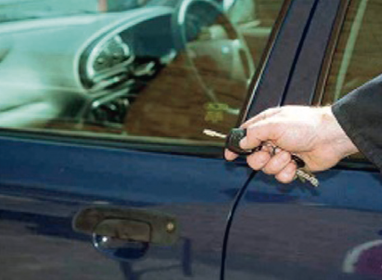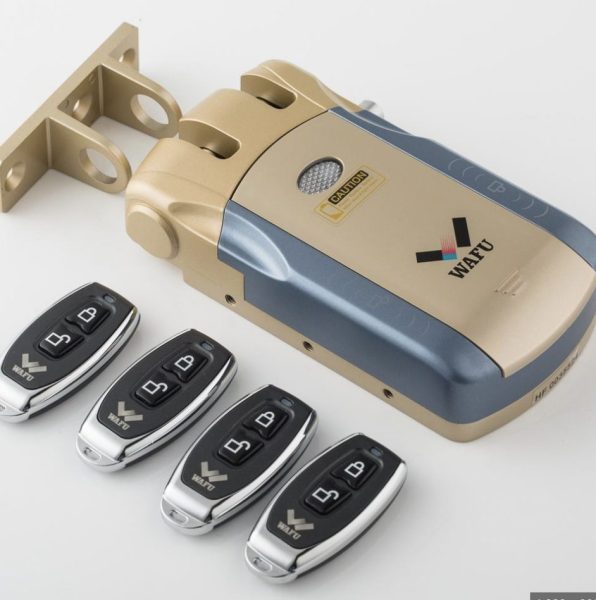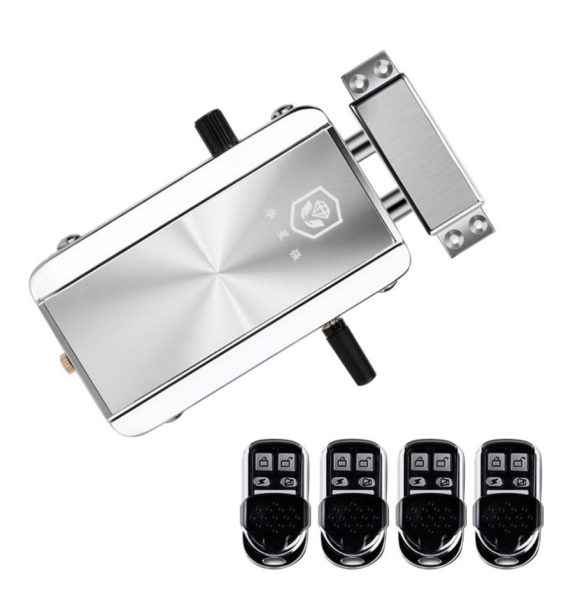Remote door locking is a relatively new technological advancement that has become increasingly popular over the past few years. It is a system that allows you to remotely lock and unlock doors using a smartphone, tablet, or computer. This technology provides a lot of convenience, security, and peace of mind for homeowners and businesses alike.
How Does Remote Door Locking Work?
Remote door locking technology works by integrating an electronic locking mechanism with a wireless network. The lock itself is controlled by a small computer, which is connected to a wireless network. When you send a signal to the lock from your smartphone, tablet, or computer, the computer sends a command to the locking mechanism to either lock or unlock the door.
Benefits of Remote Door Locking
- Convenience – One of the biggest advantages of remote door locking is convenience. You can lock and unlock your doors from anywhere in the world, as long as you have an internet connection. This means you can let in friends or family members even if you’re not home, and you don’t have to worry about losing your keys.
- Security – Remote door locking also provides a high level of security. You can monitor who is entering your home or business and when they do so. Additionally, many remote door locks come equipped with a video camera, which allows you to see who is at the door before granting them access.
- Peace of Mind – With remote door locking, you don’t have to worry about whether or not you locked the door before you left. You can check the status of your door at any time, and if you forgot to lock it, you can lock it remotely.
- Integration with Other Smart Home Systems – Remote door locking can be integrated with other smart home systems, such as security systems, lighting, and temperature control. This means you can create a fully automated home or business that can be controlled from a single app.
Types of Remote Door Locking Systems
- Keyless Entry – Keyless entry systems are the most popular type of remote door locking system. They typically use a keypad or touch screen to enter a code to unlock the door.
- Biometric Access – Biometric access systems use fingerprint or facial recognition technology to unlock the door. These systems are becoming increasingly popular in commercial settings.
- Bluetooth – Bluetooth door locks allow you to lock and unlock your doors using your smartphone. The lock connects to your phone via Bluetooth, and you can control the lock from anywhere within range.
- Wi-Fi – Wi-Fi door locks are the most versatile type of remote door locking system. They can be controlled from anywhere in the world, as long as you have an internet connection.
Considerations When Choosing a Remote Door Locking System
When choosing a remote door locking system, there are several factors to consider:
- Cost – Remote door locking systems can vary in price, with some costing several hundred dollars. Be sure to choose a system that fits within your budget.
- Compatibility – Make sure the remote door locking system you choose is compatible with your home or business’s existing infrastructure.
- Security – Make sure the remote door locking system you choose is secure and has built-in encryption to prevent hacking.
- Ease of Use – Choose a remote door locking system that is easy to use and understand. Make sure it has a user-friendly app and clear instructions.
In conclusion, remote door locking is a modern and innovative technology that offers many benefits to homeowners and businesses. It provides convenience, security, and peace of mind, and it can be integrated with other smart home systems. When choosing a remote door locking system, be sure to consider cost, compatibility, security, and ease of use.

Remote door locking technology is an excellent addition to any home or business security system. It offers a high level of convenience, security, and control. With remote door locking, you can monitor and control who enters your property, whether you’re at home, work, or on vacation.
Remote door locking systems use various methods to authenticate access. Some systems use a traditional keyless entry, while others use biometric technology to identify users through fingerprints, facial recognition, or other forms of identification. Bluetooth and Wi-Fi door locks allow you to control the lock using a mobile app on your smartphone.

One of the primary advantages of remote door locking is that it allows you to lock and unlock doors from anywhere, as long as you have an internet connection. This is incredibly convenient, especially if you have friends, family members, or service personnel who need access to your home or business while you’re away. You can also remotely lock your doors in case you forget to do so before leaving, providing peace of mind.
Another significant benefit of remote door locking is security. With a remote door locking system, you can monitor who enters your property, and at what time. Some systems come equipped with video cameras, which allow you to see who is at the door before granting access. This level of monitoring is especially beneficial for businesses, where sensitive information or valuable assets need protection.

When choosing a remote door locking system, consider factors like compatibility with your existing infrastructure, the cost of the system, and the level of security it provides. You should also consider whether the system is user-friendly and easy to operate.
In addition to its security benefits, remote door locking can also be integrated with other smart home technologies, such as lighting, heating, and security systems. This can create a fully automated home or business that can be controlled from a single app, adding to the overall convenience and security of the property.
In summary, remote door locking technology provides many advantages for homeowners and businesses. It offers convenience, security, and peace of mind, and can be integrated with other smart home technologies. When choosing a remote door locking system, consider factors like compatibility, cost, security, and ease of use.




